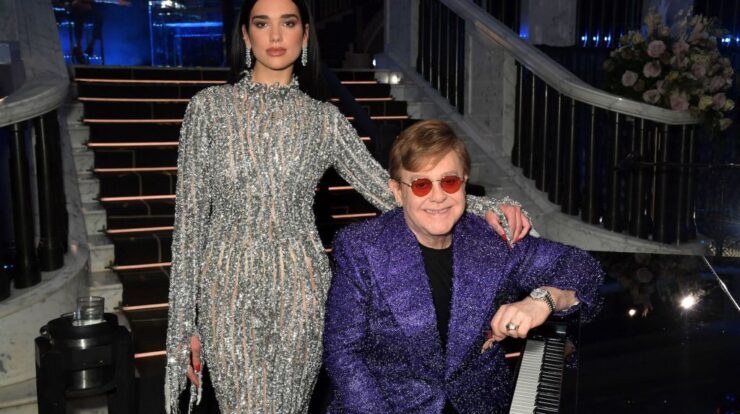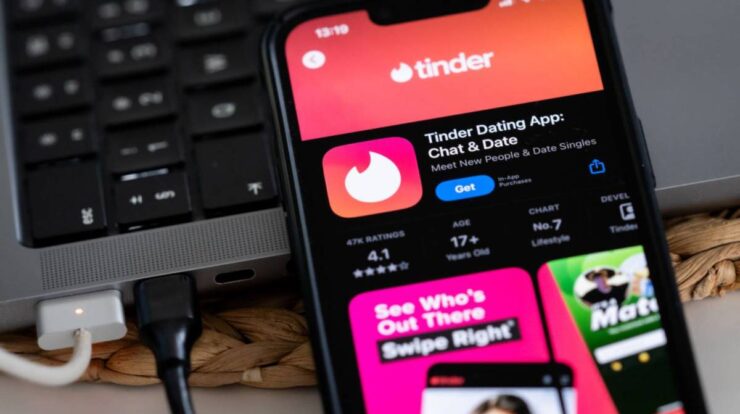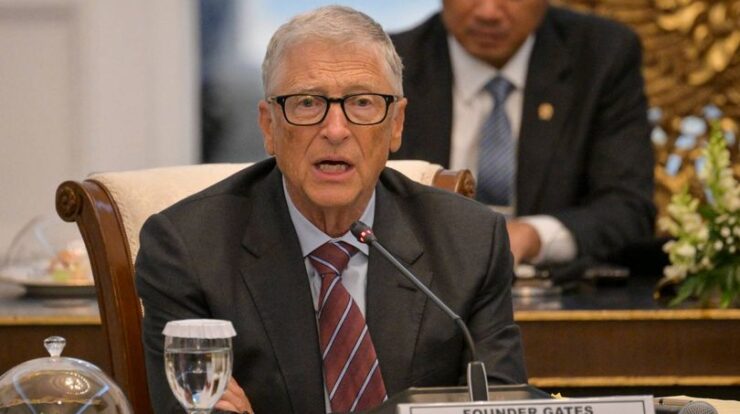The new pontiff has already given some hints about his priorities as head of the Catholic Church — among them are peace, climate change and technology. But abuse scandals will remain a hot-button issue.The conclave elected Cardinal Robert Prevost as the 267th pope surprisingly quickly on Thursday. Prevost, a native of the United States and a Peruvian citizen after having spent many years in the South American country, is a multilingual man of the world.
However, what areas will the new pontiff prioritize as he leads the Catholic Church? Hints were provided during his inaugural brief speech as Pope Leo XIV on Friday. For the first time ever, a pope addressed the public not just in Italian but also included several phrases in another contemporary language—Spanish—to greet his “beloved Diocese of Chiclayo, located in Peru.”
Leo additionally employed the term “peace” tenfold, often sounding as though it was deeply rooted in biblical contexts. However, when he described this peace brought about by the resurrected Christ as one characterized by disarmament—being without arms—and marked by humility, perseverance, and non-confrontation, current adversities became more prominent. He asserted, “Evil shall not triumph! We are all under God’s protection,” subsequently calling for efforts to construct bridges.
Representing both the US — and Latin America
Leo’s initial address was concise yet distinct. Cardinal Reinhard Marx from Munich, who participated in the papal conclave, referred to the Pope’s linguistic selection as a “deliberate choice,” indicating his reluctance to use English or “to further emphasize a particular connection with the United States.”
Marx stated, “The US bishops inform me that they view him as more of a Latin American figure. For them, he leans towards THAT side,” suggesting that the pope isn’t perceived as being particularly aligned with Europe.
This could very well be the greatest achievement of the papal conclave: The leader of more than 1.4 billion Roman Catholics is now from America. Consequently, the President of the United States—who views himself as the globe’s preeminent figure—is set against someone who might wield even greater influence and has worldwide reach.
What direction will the dynamic between President Donald Trump and Pope Leo take? According to Marx, Cardinal Prevost’s earlier comments “weren’t always ones that would please the president at every turn.” While as pope, he wouldn’t seek confrontation, his response could hinge upon actions taken by the president. Nonetheless, Marx noted, Pope Leo intends to proceed with independence regardless of the situation.
Marx further stated, “He most definitely isn’t the type of person to assert ‘I am from the United States and thus won’t adopt an open and unambiguous stance.’”
Contradicting Trump and Vance
Unlike many U.S. bishops and cardinals, Leo has openly disagreed with both Trump and his Vice President, JD Vance—who converted to Catholicism a few years back—on social media platforms under his capacity as a cardinal.
Prevost has consistently upheld the stances of Pope Francis and the Catholic Church regarding immigration policies, efforts to combat global warming, and environmental care. Additionally, he explicitly advised Trump—who often attributes such concerns to the “far-left”—to peruse the previous pope’s 2015 encyclical “Laudato Si,” which addresses ecological duties.
Just a few weeks ago, in response Vance’s attempts to explain the concept of charity to the church with regard to refugees and isolationism, Prevost tweeted: “JD Vance is wrong.”
Pontifical pluck?
The installation Mass for Pope Leo scheduled on May 18 promises to be a thrilling event. It is anticipated that over 200,000 devoted individuals will join, as well as numerous government officials and leading political figures from various countries worldwide.
Reports from Rome indicate that Trump intends to attend, which could lead to a meeting between Leo and his American counterpart. It’s safe to assume that at 69 years old, Leo is expected to stay in office considerably longer than the 78-year-old Trump does.
Prevost’s tweets indicate that during his tenure, the Vatican won’t alter its stance on key political matters like immigration, combating climate change, and global social responsibilities. However, concerning Russia’s aggressive actions towards Ukraine, diplomats anticipate that the Holy See might adopt a more definitive position compared to his predecessor, Pope Francis. This expectation stems from the fact that Prevost often emphasizes peace, unlike Pope Francis, who was less explicit in distinguishing between perpetrators and victims in this conflict.
Is there a moral authority for addressing new technological challenges?
An issue significant to Pope Leo pertains directly to his chosen papal name. According to Chilean Cardinal Fernando Natalio Chomali’s conversation with veteran Vatican correspondent Inés San Martín for The Detroit Catholic, Leo “has deep concerns regarding the current cultural transformations, which can truly be seen as a Copernican shift—encompassing artificial intelligence, robotics, and human interactions.” Additionally, Chomali mentioned that this new pontiff found inspiration in Pope Leo XIII. This predecessor served as pope throughout the period of the Industrial Revolution, spanning from 1878 to 1903, and initiated an essential discourse between the Church and contemporary society.
The newly appointed pope thinks the church holds an essential position in addressing the current period of “bewilderment,” Chomali noted further. “A significant transformation is underway, and it needs to be taken seriously.”
Leo confronts ‘pivotal decision’ regarding clergy sexual abuse
Following his election last Thursday, several figures have apparently spoken about a specific matter concerning the newly elected Pope. In late March, the Survivors Network of Those Abused by Priests—a U.S.-based global organization—filed a complaint with the Vatican against Prevost along with five additional cardinals, accusing them of covering up abuses. Post-election, this group restated their criticisms.
On Friday, Hans Zollner, who once held a key position within the Vatican’s anti-child-abuse commission, suggested that he believed the conservative Peruvian Catholic organization known as Sodalicio de Vida Cristiana might be responsible for lodging these allegations. Both Pope Francis and Prevost, when serving in Peru, had taken strong measures against this entity. In early 2025, Francis went so far as to ban the group partly because of instances of misconduct.
Clergy Abuse Survivors Network Ending Clergy Abuse appealed to Pope Leo to keep pursuing investigations into abuse allegations and include individuals who have been impacted. The organization stated on Friday that queries regarding his handling of these matters were sparking renewed demands for openness, unbiased probes, and involvement of survivors. They emphasized that “Pope Leo XIV currently confronts an essential decision: uphold a flawed structure or steer the Church toward a new era defined by responsibility and reforms led by survivors.”
The article was initially composed in German.
Copyright 2025 DW.com, Deutsche Welle. Distributed by Tribune Content Agency, LLC.






